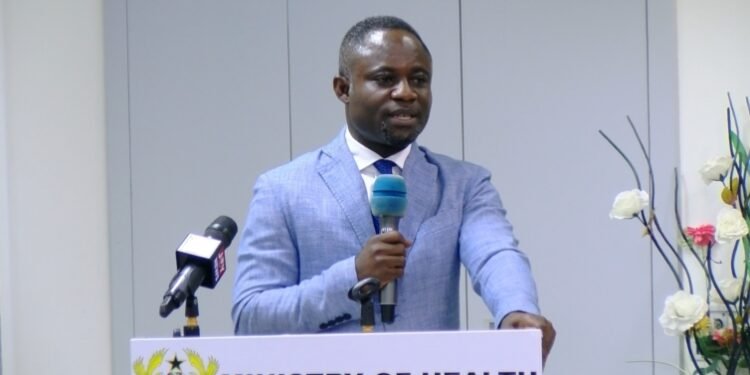The Chief executive of the Ghana Interbank Payment & Settlement Systems (GhIPSS) reveals that Ghana is ready to go cashless.
According to him Ghana has the robust infrastructure especially as far as GhIPSS is concerned to ensure a cashless economy.
He made this statement whilst speaking on the topic ‘Cashless Economy: are we ready?’ on PM Express in Accra on Thursday night.
“I think we are ready … we bought brand new state of the art servers that will last roughly 10 years before they are replaced again. Our applications and then the various fraud systems and everything were changed. So, so far as we are concerned at GhIPSS, I know our systems are robust and we have used it for a number of years and we have not had any serious issues. So I’m not so worried about the robustness of our infrastructure”.
According to Mr. Hesse, COVID gave GhIPSS the opportunity to actually showcase that Ghana is really poised for the cashless agenda.
Touching on the ownership and functions of GhIPSS, he explained that it is a wholly owned 100% subsidiary of the central bank. Which is looking at coming up with an IT infrastructure to facilitate payment in the country.
He indicated that the national switch is important in this country because once you have gone past 3 banks in a given country, then there is the need to have a national switch that everybody can connect so that you can have access to all banks or all financial equities within the country.
“So the role of GhIPSS is to establish that national or the central switch that is needed. So our role is; to develop and implement that national switch; operate it; and then promote the products and services around it. And that’s our prime objective”.

State of our infrastructure to support this whole cashless system
He indicated that banks in Ghana have the good IT systems but there is the need to constantly upgrade them to match up with the increasing number of products and services these banks are rolling up.
“Now, their [banks] IT systems are not bad, they are good. What I’m saying is that you might have the servers etc., but as we are increasing the number of products and services, there is need for you to manage and develop new applications, twist them, test them etc., before they become available to customers”.
On the recent rise in banking fraud cases in the country, which raised concerns about how strong our digital systems are in detecting or preventing these fraud cases, Mr. Hesse stated that, “in so far as Ghana is concerned, we have excellent leadership from the central bank, they have created a whole devoted cyber-crime unit, they have resourced the unit, they have also come up with cyber-crime guidelines to all banks”.
He indicated that the central bank directs every bank board to have a cyber-crime unit and so there are a lot of measures put in place that GhIPSS is also adhering to. And that, he believes, is so far helping the situation.
“When it comes to the electronic aspects of transmitting the file, we haven’t had any serious issues. The kind of issues on most of the crimes that you hear about been investigated are in-house. It is more of staffs in the various entities or at the user ends. The cases of mobile money are more at the agent side where physical human beings have compromise”.

He further explained that the rising fraud cases doesn’t mean the system put in place is not safe. But rather, it means that there is the need for us to have further education for end users on some of the dos and donts when it comes to electronic payments.
“When it comes to crime, it’s a game, we are doing our best to stay ahead and they are doing their best to catch-up and be ahead of us. But I can assure you that the kind of framework we have in place in Ghana is good enough. But there is always a need to do more. But when it comes to crime, I’m not so worried in that regard”.
According to him, statistics available showed that the volume of cheques is reducing, and ACH direct credit is increasing and so GhIPSS believe it’s going to grow. He added that, in the case of GhIPSS which is account to account, although the volumes are growing, it’s not as much as mobile money.
“Because I think in the mobile money area, its more convenient. Who do I mean by convenience? I know your telephone number, so I can send you money. I don’t know your bank account so there is a lot more of engagement that we need to have before I can send you money. We have introduced a new system called proxy pay that your telephone number can now be your bank account number. So you just match it.
“And banks have started rolling that out as well. So we are creating convenience in the GhIPSS and instant inter-bank arena as well. So it’s our belief that as we are creating convenience in all these digitized platforms, usage will increase. Of course we promote, we advertise, so people become aware of etc. But the game really is going to be the QR codes”.























